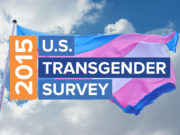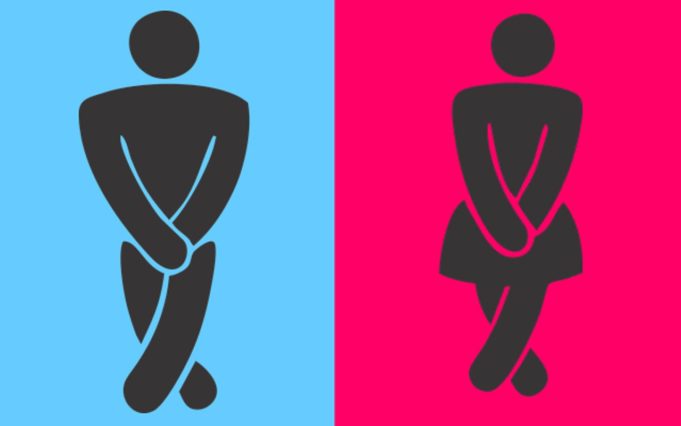The beginning of the 2017 legislative session has begun, which means more bathroom battles as 8 states introduce anti-transgender bills.
Leading the 2017 bathroom season is Texas, Virginia, Minnesota, Kentucky, Missouri, South Carolina, Alabama, and Washington. It appears the Representatives and Senators from these states are moving forward in spite of the economic losses incurred by North Carolina as a result of HB2.
Here is what’s going on in the eight states:
Texas
Texas Lt. Gov. Dan Patrick has resumed his crusade against the transgender community as he officially introduced SB6 on Thursday. If approved by the Texas legislature, the bill will force transgender people to use restrooms in schools and other public buildings according to the gender on their birth certificate. Those who would violate the proposed law would face a $1,000 fine. Patrick claims the bill is designed to protect women’s privacy and businesses, and it alarmingly resembles North Carolina’s discriminatory HB2 law. “The left and the liberal media who oppose this legislation don’t understand it,” Patrick said in a statement praising North Carolina’s inability to repeal the law. It is estimated Texas can lose around $8 Billion dollars as a result of the proposed law, however Lt. Governor Patrick has not been deterred from proceeding with the bill. According to Time magazine, LGBT advocates are expecting anywhere from 50-100 pieces of discriminatory legislation from Texas alone in 2017.
Virginia
From Del. Robert G. Marshall (R-Prince William) comes HB1612, also known as the Physical Privacy Act. The bill will also force transgender individuals to use restrooms according to the gender on their birth certificate, however what is even more controversial is the parental notification portion of the proposed law. The bill states, “The principal of a public school attended by a child shall notify the child’s parent, guardian, legal custodian, or other person having control or charge of a child within 24 hours of any request by a child to be recognized or treated as the opposite sex, to use a name or pronouns inconsistent with the child’s sex, or to use a restroom or changing facility designated for the opposite sex.” Many see this as a legal form of outing a child with dangerous implications.
Minnesota
The state legislature of Minnesota introduced House File 41, also called the Student Privacy Act. It would require all restrooms, locker rooms, shower rooms and changing rooms to be designated as strictly male and female defined sex assigned at birth and chromosomes. There is no language in the bill that explains how the state plans to determine the chromosomes of each individual student however, as this could only be verified through genetic testing. The bill does allow schools to provide single occupancy restrooms under certain circumstances.
Kentucky
Kentucky Democrat Rep. Rich Nelson introduced HB106 on January 3rd. The bill would force the executive branch of the state government to require every multi-occupancy bathroom or changing facility to be used by people according to the gender on their birth certificate. It would also require cities, counties and local municipalities to designate every multiple occupancy bathroom or changing facility it controls to only be used by people according to their “biological” sex. Nelson has also introduced the “religious freedom” bill, which would allow businesses the right to discriminate against transgender people and refuse them services under the guise of their religious beliefs.
Missouri
Representative Jeff Pogue of Missouri has introduced HB202, which is the reincarnation of last year’s HB1847 and would require all public restrooms to be designated as gender divided Restrooms. The only exception would be for single occupancy restrooms. It also prohibits all political subdivisions, businesses, buildings, and facilities in the state from enacting ordinances or policiesthat are in conflict with the proposed law.
Missouri Republican Senator Ed Emery also introduced SB98, which requires all school restrooms, locker rooms, and shower rooms accessible for use by multiple students to be designated for and used by male or female students only.
South Carolina
Perhaps a little jealous of all the attention received by North Carolina and HB2, Republican Representatives Josiah Magnuson and Deborah Long introduced HB3012. The proposed law prevents local governments from allowing people to use public accommodations, bathrooms and changing rooms regardless of their biological sex. Local governments would only be allowed to pass accommodation laws that are based on “biological” sex.
Alabama
Republican State Senator Phil Williams introduced SB1, which would require some businesses in the state to employ an “attendant” to be stationed outside its restrooms “to address any concerns or questions of the general public,” in order to protect the privacy of cisgender people. “The argument that a self-professed ‘gender identity”’ affords access to a facility over the deep concerns of other members of the public is a violation of that right to privacy,” said Williams in a statement while specifically calling out retailer Target for their pro- transgender restroom policies.
Washington
Republican Representative David Taylor introduced HB1101, which would “amend the Washington Law Against Discrimination to include a new exemption that allows a public or private entity to limit access to a private facility segregated by gender, such as a bathroom, restroom, toilet, shower, locker room, or sauna, to a person if the person is preoperative, nonoperative, or otherwise has genitalia of a different gender from that for which the facility is segregated.”
Advocacy organizations estimated that there were a total of 250 “anti-LGBT” bills proposed throughout the United States in 2016, but only a few ever made it to a governor’s desk. 2017 seems to be ramping up for more of the same as politicians continue to spend America’s hard earned tax dollars deciding where people are allowed to pee. We could be in for a long year.
































